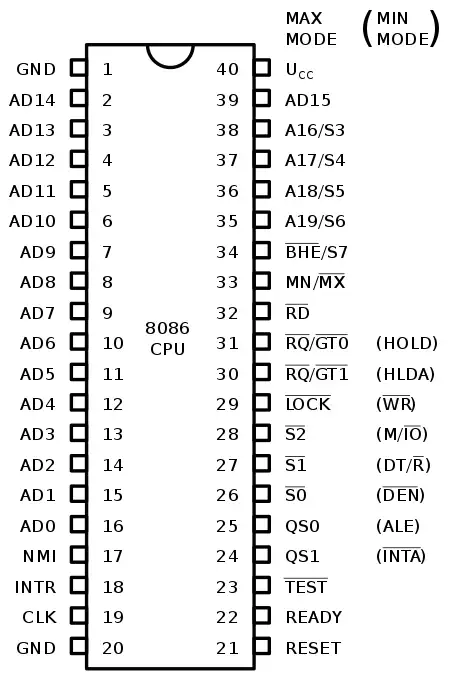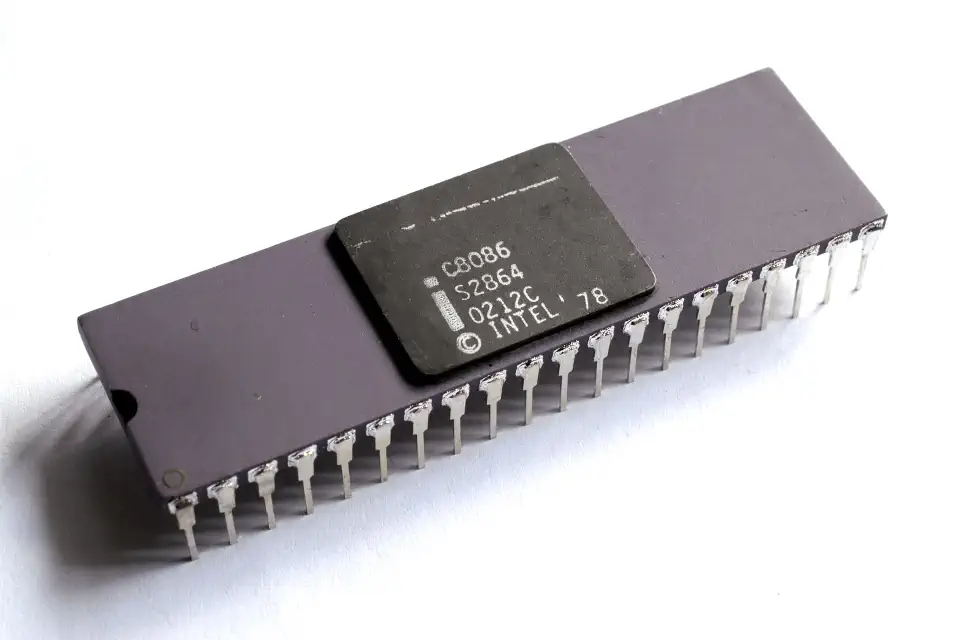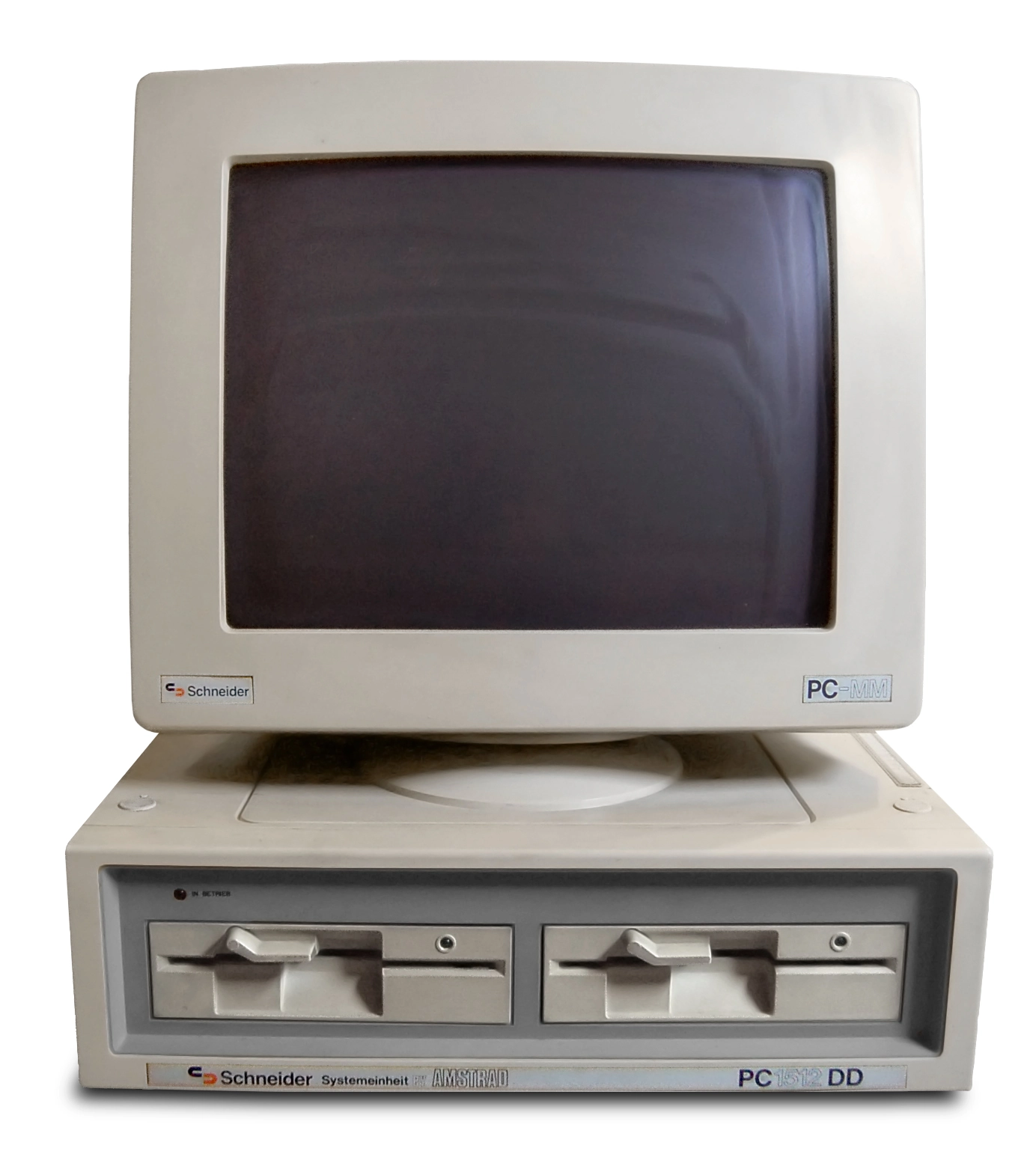Schneider / Amstrad PC 1512
The Amstrad/Schneider PC-1512 was an IBM PC-Compatible computer introduced in 1986. The computer had one or two 360kB 5.25" Floppy Disk Drives and a 10 or 20MByte optional hard drive. The Floppy disks could be upgraded to 1.2MByte capacity ones.
Amstrad had licenses for MS-DOS 3.2 and Digital Research DOS Plus. DR-DOS was compatible with MS-DOS, but also had some CP/M features, and was able to read CP/M disks. Amstrad also licensed the GEM Graphical UI windowing system, which was adapted to run on the customized CGA hardware on the PC-1512.
The PC-1512 sold very well in Europe due to it's price-point of £499, which made it one of the cheapest IBM-compatibles available at the time. The design was compact, and the system ran much more silently than some of the other computers on the market. A big difference was that Amstrad had chosen to put the power supply for the computer inside the monitor, which made swapping the monitor for another one a no-go, since the computer needed the power.
The PC-1512 sold well to both home-users and businesses. Even though the computer was marketed to the home-user, the cheap price-point and the features made it a suitable machine to run office software for businesses.
The computer shiped with 512kB of RAM which could be upgraded to 640kByte with 16 4164-120 DRAM chips and changing a jumper on the motherboard. The video was compatible with the CGA standard, but the hardware also had an extention that allowed all 16 colors to be used in the 640x200 graphics mode. The mouse that was provided with the PC1512 was an Amstrad mouse which was incompatible with many games that expected a serial mouse. Amstrad also had chosen to support Atari-compatible joysticks, the keyboard had a digital joystick port that the joysticks could be connected to. The joystick movements and buttons were mapped to keyboard codes, which allowed many games to use the joysticks, even if the game was meant for keyboard control only.
Intel 8086 CPU
The 8086 CPU from Intel is a 16-bit microprocessor and was designed between 1976 and 1978. The 8086 is the foundation of the x86 cpu architecture which is Intel's most successful line of processors.
The 8086 used the same microarchitecture as the 8-bit 8008, the 8080, and the 8085. This allowed assembly language programs to run seamlesly on the 8086. New instructions and features were added and the bus structure was designed to allow for collaboration with co-processors, such as the 8087 that was released later.
Source: WikiPedia

RAM max: 640kB Display 620x200 in 16 colors
CGA Compatible Best Text 80x24 Best Color 16 colors Best Graphics 620x200 System OS MS-DOS 3.2
DR-DOS Plus Storage 5.25" FDD
10 or 20MB HDD Original Price £499


